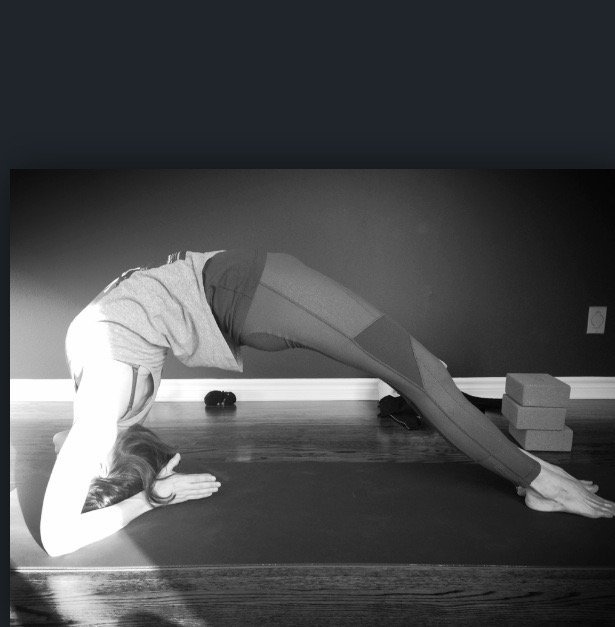Keep Trying 101
After doing yoga for almost 20 years, I wanted to take on some new challenging poses. I hooked up with a yoga teacher and did some private lessons. Much of our initial work was building strength; I was already flexible, but I was lacking the strength required to do some of the more advanced poses. I did yoga every day, push ups every night, and found opportunities to do the plank whenever I could throughout the day. Probably a year later, after strengthening, building confidence, and hundreds of attempts – I could do some pretty cool poses.
The process of feeling better through psychotherapy can be thought of in a similar way to my yoga experience. Clients come to therapy wanting to change something (patterns of behaviour, thinking, and feeling), and through working with an expert, they build skills and confidence in using these skills to change the problematic patterns.
Yet, change can be really difficult. You want to change – how do you make it easier to do?
Humans love the past of least resistance. Of course - which is easier? Walking down a smooth paved road, or blazing a new trail in a forest filled with underbrush and uneven ground?
The Habitual Responses of Anxiety
Walking paved road is akin to our habitual responses. Something happens, we respond in the same way, and experience the same feelings. In therapy, we discover the ABCs of these patterns – the Antecedent, your Behaviour, and the Consequences.
The Antecedent is typically thought of as the “situation that triggers.” But for overthinkers with anxiety, the antecedent is usually a thought, like “What are people going to think?!” A thought triggers anxious feelings, and we turn toward that smooth road and respond out of habit.
And what does the smooth, paved road look like for people with anxiety? Our Behaviours are typically avoidance of the Antecedent that brings up the difficult feelings, or managing the feelings in an unhelpful way. In my practice, I typically see individuals whose Behaviours fall into overworking, overachieving, overthinking, perfecting, or people pleasing in response to the Antecedent.
Unfortunately, these Behaviours don’t make us feel better and don’t reduce our anxiety in the long term. So what do we do?
“I just need to stop thinking like this”
When I first start working with clients, they often have gotten the idea from our culture that what they need to do is either stop thinking the thoughts that made them anxious, or just think more positive thoughts. I described here why this is futile.
Trailblazing is the Way to Go
Instead, we have to turn away from the smooth, paved road and start trampling down a new path through the forest. What we were doing isn’t working; it’s time to start trying something new – changing our habitual responses. Just like making a new path through the forest is difficult, this is really hard to do on your own, which is why people turn to psychotherapists for help.
Change is hard. Changing habits that have existed for years is really hard. We spend two decades of our life in school learning how to think in a particular way. Changing the way you think about your thoughts is also going to take time, effort, and persistence.
To top it off, as adult learners, we tend to expect ourselves to “get it right” the first time. I’ve lost count of many times I’ve heard from clients “yeah, I tried it once/twice/few times and it didn’t work.”
Babies learning to walk fall an average of 70x per hour.
Imagine if a baby gave up trying to walk as quickly as an adult gives up trying new skills.
In psychotherapy, you are learning new skills. You’re developing the ability to observe, monitor, and examine your behaviours, thoughts, and emotions. You’re trying out new ways of soothing yourself, and responding in different ways to situations and thoughts. And, you’re being asked to perform these new skills in a very dynamic environment, and often when in distress.
"I have not failed. I've just found 10,000 ways that won't work."
-Thomas A. Edison
3 Tips for Learning Skills in Psychotherapy
Be willing.
You’ve come to therapy because you wanted change. Be open to trying new ways of doing things.
2. Be kind.
You’re learning. When you fall down, yell “whoopsie!”, cheer and clap like you would to encourage a baby to get back up and walk. If you need some help with this, read my post on self-compassion.
3. Practice while you’re feeling good.
Learn the new skill until it’s automatic while you’re feeling good. When you’re in the middle of a distressing situation is not the time to try to learn something new.
Keep these tips in mind while you’re blazing your trail to new, healthier habits. Let me know if you’d like some help with it.
Kira Hensley
The information on this website is for informational purposes only. It is not intended to be a substitute for professional medical advice, diagnosis, or treatment or to replace your relationship with your health care provider. Always seek the advice of your physician or other qualified health provider with any questions you may have regarding a medical condition. Never disregard professional medical advice or delay in seeking it because of something you have read or seen on this site.





